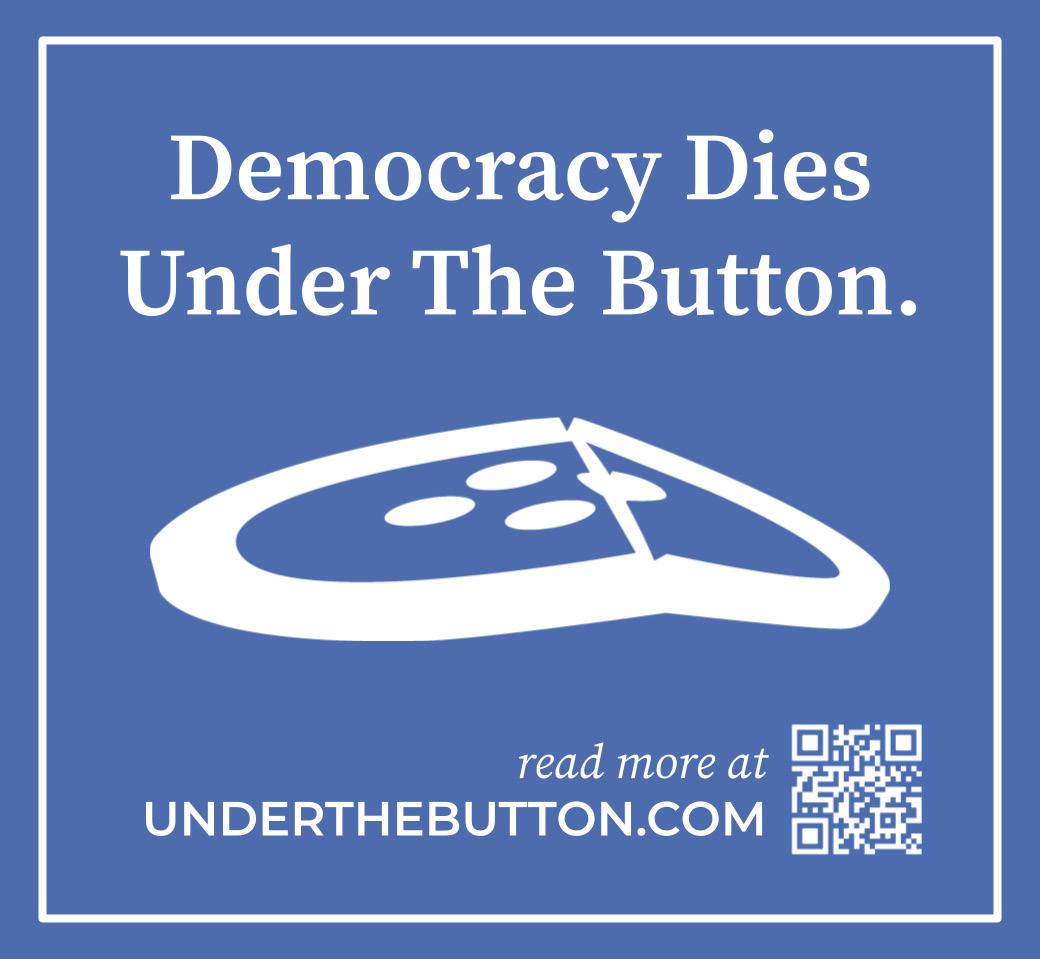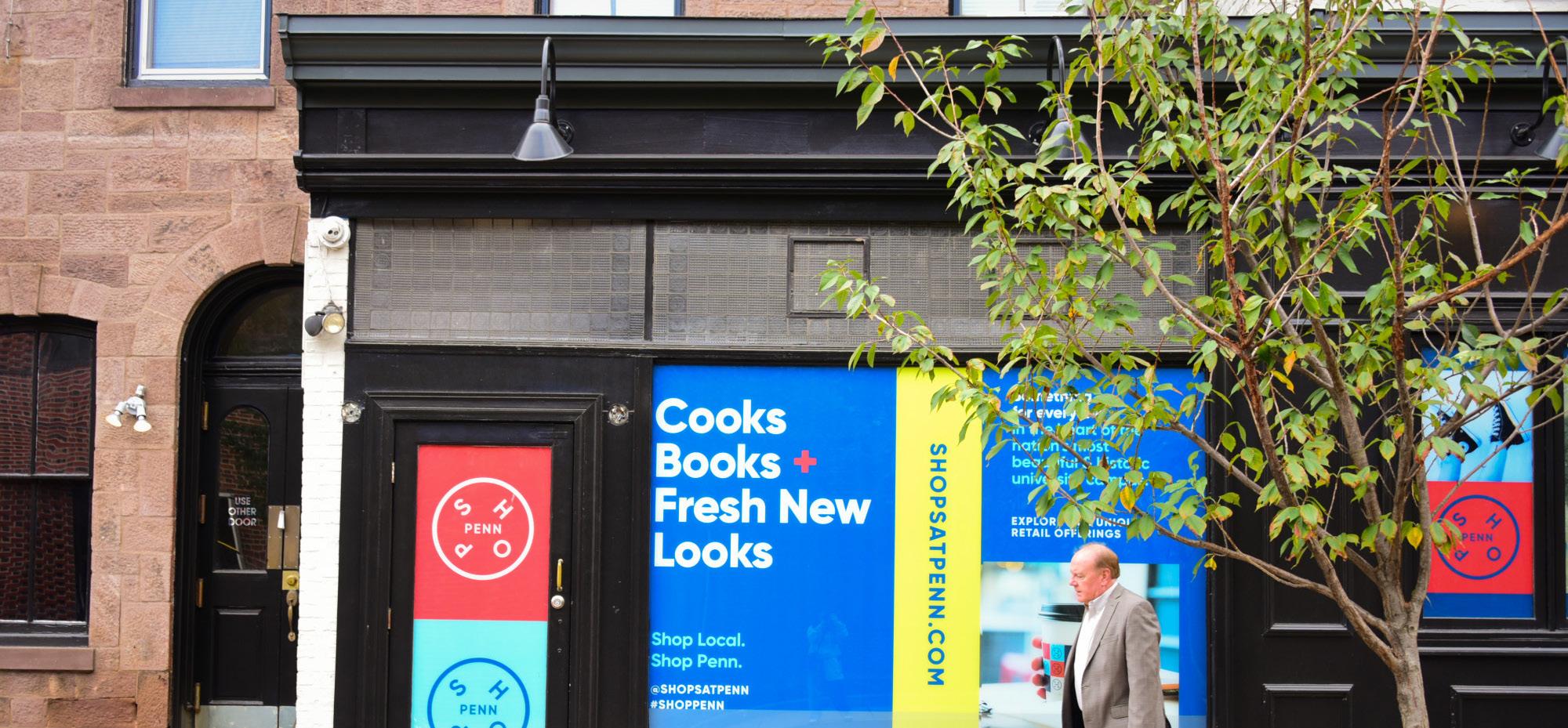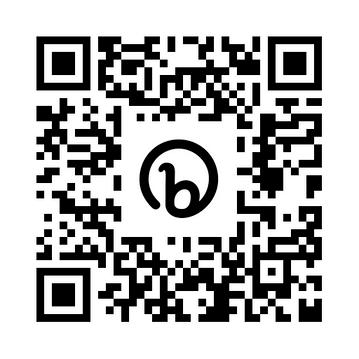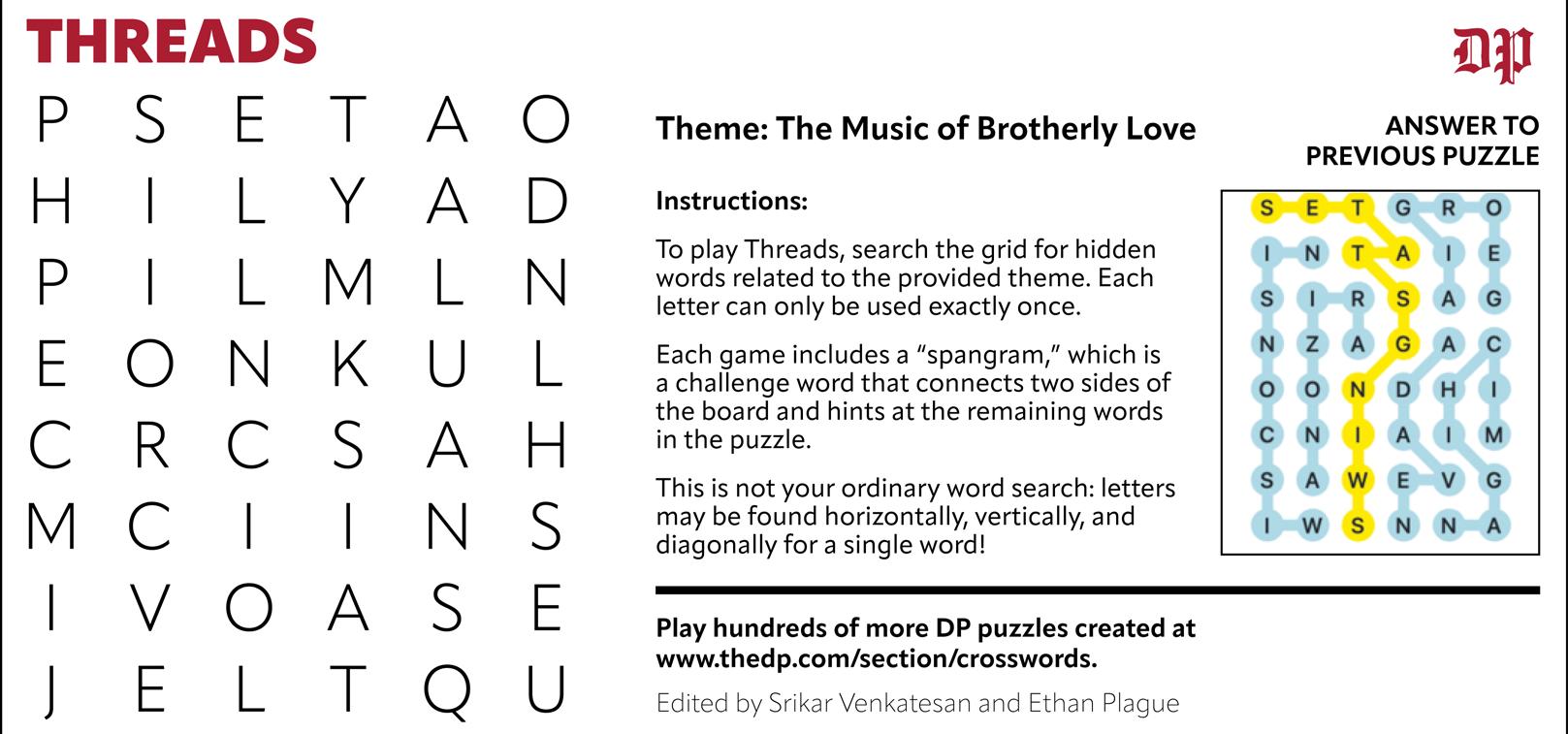








Penn alumni, adversaries ascend to power
President-elect Donald Trump will take of ce alongside a Republican trifecta keen on scrutinizing the University THE DAILY PENNSYLVANIAN STAFF
See inside, page 7

Penn suspends Wharton fraternity for hanging posters alleged to mock kidnapped Israelis
A University spokesperson described the posters as “crude” and “deplorable,” adding that Penn was working to identify the individuals responsible for them
BEN BINDAY News Editor
Penn has suspended its chapter of the Delta Sigma Pi business fraternity until fall 2025 after an investigation into its involvement in hanging “Missing Cow” posters alleged to mock kidnapped Israelis.
In a statement to The Daily Pennsylvanian, DSP Executive Director Jeremy Levine wrote that DSP was suspended until at least fall 2025 “as a result of violations of the Delta Sigma Pi Risk Management Policy.” A recent report by the United States House Committee on


Education and the Workforce, which included some of Penn’s disciplinary records, wrote that the suspension of a Wharton fraternity came after an investigation into the “Missing Cow” posters.
The records indicated that the posters had been hung as a part of an “‘initiation-week’ ‘prank’ by newly-recruited members.”
See DSP, page 7
Penn Museum uncovers remains of MOVE bombing victims
The statement con rmed that the remains matched the records of Delisha Africa, and that the ndings have been communicated to the family
VIDYA PANDIARAJU Senior Reporter
The Penn Museum announced on Wednesday that they have located additional human remains connected to the MOVE bombing.
On Nov. 13, Penn museum published a statement — titled “Towards a Respectful Resolution” — where they said an “ongoing comprehensive inventory of [the museum’s] biological anthropology section” led to the discovery. The statement confirmed that the remains matched the records of Delisha Africa, and noted that the findings have been communicated to her family.
“As we promised the Africa Family and our community in 2021, we have acted with speed and transparency in returning the remains, and we will continue to do so with all human remains in our care,” the statement said.
In 1985, the Philadelphia city government bombed a home on Osage Avenue that housed MOVE, a Black liberation advocacy group. The bombing killed 11 people — including five children aged seven to 13 — and destroyed 61 homes in the neighborhood, leaving 250 local residents without a home.
The remains included a pelvic bone and a femur that were previously in the custody of now-retired Anthropology professor Alan Mann, who received the remains from the city of Philadelphia in the 1990s after he was asked for assistance in identifying them.
Mann studied the remains in collaboration with Anthropology professor and Penn Museum Physical Anthropology Curator Janet Monge before taking them to Princeton University for additional research. They were transferred back and forth between Penn and Princeton for over 35 years.
At a press conference in 2023, Ramona Africa, the sole living adult survivor from the MOVE bombing, said that the Penn Museum has “abused those remains, they have refused to give us those remains, the bones.”
In 2021, The Daily Pennsylvanian reported that a forensic anthropologist hired by the MOVE Philadelphia Special Investigation Committee identified some remains as belonging to a 12-year-old victim known as Delisha, and

a 14-year-old victim known as Tree. The whereabouts of the remains were unclear at the time, but Penn Museum Director Christopher Woods told The New York Times that the remains were sent to Mann in April 2021. As of 2023, the location and status of the remains of Delisha Africa had not been confirmed to the public. Ramona Africa said at the 2023 press conference that she cannot trust the Penn Museum. Abdul-Aliy Muhammad, a local community activist who also spoke at the event, presented claims of new evidence of the museum’s possession of the additional remains of two victims of the MOVE bombing. The evidence came from photos of an online photo-sharing site from a public event that was hosted in 2014. Princeton course series titled “Real Bones: Adventures in Forensic Anthropology,” in which Monge and an undergraduate student examined the remains and attempted to determine the age of the bones, also previously provided evidence of the remains.
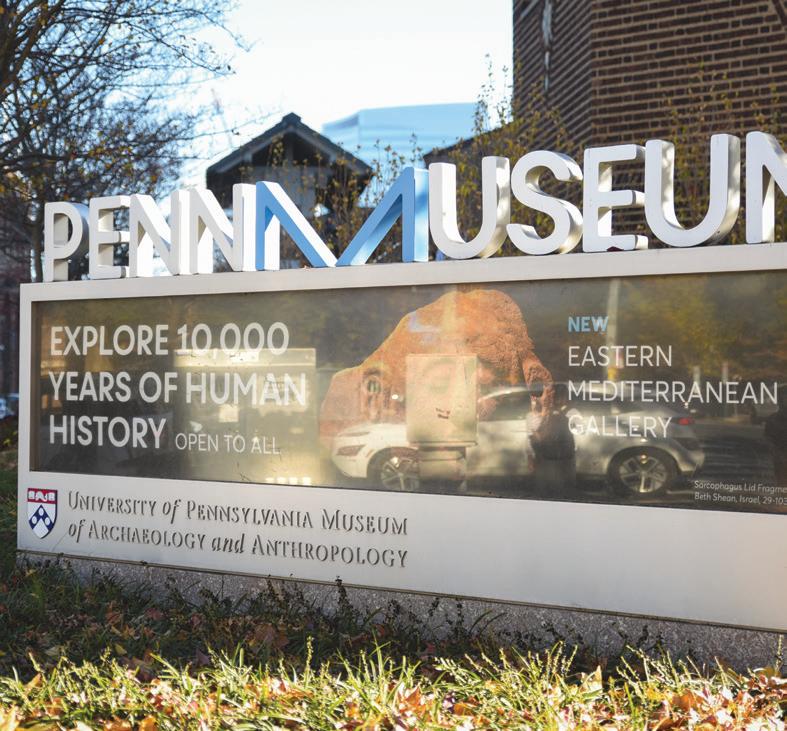



Students at Penn Hillel rally against recent antisemitic violence in Amsterdam and Phila.
The Penn Israel Public Affairs Committee and Hillel co-organized the rally
SAMANTHA HSIUNG Senior Reporter
Around 30 students rallied outside Penn Hillel on Nov. 10, calling for more media attention towards antisemitic attacks happening in the United States and abroad.
Penn Israel Public Affairs Committee and Hillel coorganized the rally to advocate for Israelis who have been held hostage in Gaza since the Oct. 7, 2023 Hamas attack on Israel. They also rallied for the victims of recent attacks on Israeli soccer fans in Amsterdam.
The event featured three speakers — Wharton and Engineering senior Noah Rubin, Drexel University student Sammy Shiff, and a third speaker who did not
identify themself.
During the rally, Rubin spoke on the ongoing captivity of Israelis by Hamas, calling the holding of hostages “completely unacceptable.” He said that since the Oct. 7 Hamas attack on Israel, there has been a significant increase in antisemitism globally “to the point where antisemitism has been normalized.”
Rubin also discussed the Nov. 7 attacks on Israelis at a soccer match in Amsterdam. After the match — which took place between Israel’s Maccabi Tel Aviv Football Club and the Netherlands’ AFC Ajax — attackers assaulted Israeli spectators, kicking and beating them, according to Dutch officials. The assaults were condemned as antisemitic by authorities in Amsterdam, Israel, and across Europe.
“We have to come to our own rescue here in the United States, and we have to continue to stand up,” Rubin said. “We have to continue to speak out about these things, because as we know, no one is going to come save us but ourselves.”
In an interview with The Daily Pennsylvanian, Rubin discussed attacks on Philadelphia’s Jewish community, emphasizing the importance of media coverage and discussions on antisemitism and its prevalence in the world.
He highlighted recent events at the Congregation Mikveh Israel, a historic Jewish synagogue in Philadelphia that was attacked three times in October. Vandals scrawled profanities on a religious statue outside the synagogue, an arsonist set a dumpster near the building on fire, and two men tried to break into the synagogue.
“It’s become normalized to the point where it does not get media coverage, and if it was any other group, it would be the front of the newspaper, which I totally support,” Rubin told the DP. “I think that any minority

group or cultural group that is attacked should have people rally around it, and should have people that stand up and say, ‘This hatred is not OK.’”
Following Rubin’s speech, Shiff shared a story about his cousin, who was in Amsterdam to support the soccer match between Maccabi Tel Aviv F.C. and AFC Ajax when the attacks on Israeli fans occurred. Shiff said that at night, his cousin decided to take the taxi home, which stopped a few blocks from his hotel. Shiff alleges that his cousin got “beat up by thugs,” including the taxi driver, who “joined the thugs.”
“Jewish people need Israel, a place where we can feel safe and be our Jewish selves, without fear of being persecuted, killed, or attacked,” Shiff said.
The third speaker, who did not identify themself,
Democrats hold majority in Pa. state House, potentially a ecting Penn funding, abortion rights
Party control in the state legislature could in uence issues such as the status of funding for Penn’s School of Veterinary Medicine, abortion rights in Pennsylvania, and higher education
THEO GREENFIELD Staff Reporter
Despite experiencing statewide defeat in the presidential election, Pennsylvania Democrats held onto their slim majority in the state House of Representatives on Election Day — a feat which may have several impacts on Penn and its students.
Party control in the state legislature could influence issues such as the status of funding for Penn’s School of Veterinary Medicine, abortion rights in Pennsylvania, and higher education. The state House currently sits at 102 Democrats and 101 Republicans — with Democrats retaining the majority they obtained during the 2022 midterm election.
While Democrats maintained control of the state House, Pennsylvania will continue to have a divided government after this year’s election. The state Senate remains in Republican control after the election with a comfortable majority of 28 to 22, and Democrat Josh Shapiro currently holds the governorship. The split
leadership will necessitate additional compromises over Pennsylvania’s annual budget and other legislation after extensive disagreements during this year’s budget negotiations.
While Penn, as a private university, is not state-funded, Penn Vet has received state funding since 1889. Penn Medicine’s Division of Infectious Diseases also annually receives funding from the Commonwealth.
In December 2023, the state House voted to withhold more than $31 million dollars in funding from Penn Vet over concerns of antisemitism on Penn’s campus. Most Republicans voted against approving the funding, though every Democrat voted in favor.
While the Commonwealth later allocated Penn funding in the 2024-25 fiscal year budget, the University has still not received the initial funding withheld in late 2023.
The Southeastern Pennsylvania Transportation Authority, which serves Penn, also relies heavily on funding
from the Commonwealth. After furious negotiations between the state House, Senate, and Shapiro, a recent legislative session ended without a compromise to provide SEPTA with funding — potentially forcing the transit agency to cut service and drastically increase fares.
Funding for SEPTA will likely arise as a potent topic in the newly elected state legislature. By virtue of holding a majority in the state House, Democrats — who support additional funding and previously passed $283 million in funds for SEPTA — may have a stronger position in upcoming negotiations.
In the aftermath of pro-Palestinian protests in the fall 2023 semester, several state House Republicans introduced legislation to combat antisemitism in higher education institutions in Pennsylvania. Because the legislation did not receive the two-thirds majority required for passage by the state constitution, the bill was not passed. It is unclear if similar legislation will be introduced
spoke about Kristallnacht — a riot in Germany led by the Nazi Party on Nov. 9, 1938 that caused the mass destruction of Jewish synagogues, businesses, and homes. The speaker acknowledged the anniversary of Kristallnacht and drew connections to the attacks in Amsterdam.
“What was supposed to be a civil match of football became scenes of violence against Jews simply for being Jews,” they said. “This flagrant display of violence and hatred cannot be ignored, because if it is, we risk, once again, ignoring the signs that the world is showing us and finding ourselves in a violent reality — at which that point it will be too late to change.”
The event ended with the singing of “Oseh Shalom” — a prayer for peace.

during the House’s next session. Abortion has become a hot-button issue on a federal level, especially during the 2022 midterm elections. While abortion is legal in Pennsylvania, it is not enshrined in the state constitution. State House Democrats have promised to block attempts to overturn abortion rights.
Pennsylvania state Rep. Tarik Khan (D-Philadelphia), a 2022 Ph.D. graduate from Penn’s School of Nursing, authored a bill in February that aimed to reform statewide abortion access and remove barriers to reproductive health.
Penn is represented by 2013 Engineering graduate Rick Krajewski, a Democrat who has served in the state House since 2021 and ran this past election cycle unopposed. In May, Krajewski issued a statement expressing his disappointment with Penn’s dismantling of the Gaza Solidarity Encampment.




University
to free speech on college campuses, including Penn's. The event drew over 20 students and faculty and was held in collaboration with media nonprofit organization Free To Choose Network, the Penn Alumni Free Speech Alliance, Voices for Liberty, and the Andrea Mitchell Center for the Study of Democracy.
Wax spoke during the question and answer section of the talk about the state of free speech at private universities such as Penn.
Wax is currently sanctioned by the University for comments that were “serious violations of University norms and policies,” according to a June 2023 letter from the hearing board assigned to her case. The Daily Pennsylvanian previously reported that the hearing board's recommended sanctions included a one-year suspension at half pay, the removal of Wax's named chair and summer pay, and a requirement for Wax to note in public appearances that she is not speaking on behalf or as a member of Penn Carey Law.
After attendees asked Strossen questions regarding the legal implications of hate speech and protections for individuals targeted by offensive language, Wax asked her question. She began by paraphrasing John Stuart Mill’s book “On Liberty,” which discusses the distinction between official government censorship and informal “social ostracism.”
“We now have private universities that are essentially canceling people whenever they feel like it,” Wax said. “And it's not just me … but hundreds of people throughout the country, and it's very hard to see how one can bring them to heel.”
She then proceeded to describe an alleged conversation that took place between her lawyer and Penn’s Assistant General Counsel "about a year ago" regarding the University's relationship to free speech.
"The Assistant General Counsel said, 'We can do anything we want. We can contradict ourselves. We can embrace free speech in our pronouncements, but violate it any time we feel like it, we can lie, we can misrepresent,'" Wax said, describing the conversation. A University spokesperson wrote in a statement to
the DP that Wax's statement "is absolutely untrue."
Wax declined to provide a comment to the DP at the event.
In response to Wax's question, Strossen noted that while private institutions such as Penn are not bound by the First Amendment, Penn making a promise or pronouncement to protect students and faculty's free speech rights can create a contractual obligation.
“One type of lie that is punishable is a fraudulent statement — an intentional or reckless misstatement that you make to somebody intending them to rely on it,"
Strossen said.
Strossen served as ACLU president for 18 years and currently serves on its advisory board, as well as on the boards of Academic Freedom Alliance, Heterodox Academy, and the National Coalition Against Censorship. She is currently working with Free To Choose Network on "Free To Speak," a documentary series also centered on free speechrelated issues.
Strossen is also a senior fellow at The Foundation for Individual Rights and Expression, which ranked Penn the fourth-worst college in the nation for the status of free speech on campus in September.
College first year Tony Kim said that Wax’s appearance at the event made the conversation “more dynamic,” but that Penn was acting within its authority to sanction her.
“Because this is a private institution, the Penn administration can censor that speech,” Kim said. “The Penn board basically represents the opinion of the Penn community.”
Strossen told the DP after the event that, from what she has read, University administrators are “pillorying” Wax in punishing her for comments made outside of her academic capacity.
“I say that because Penn, even though it's a private institution not bound directly by the First Amendment, has professed that it will commit itself to adhere to First Amendment principles,” Strossen said.
She conceded that recent allegations against Wax have accused her of directly targeting students, which would justify the sanctions. However, Strossen said that she finds these allegations suspicious, saying that complaints against Wax’s outside speech had been raised “for years,” but that formal claims of harassment have only surfaced recently.
Strossen added that she is “so grateful that there are student organizations here who are interested in promoting free speech.”

Penn’s cultural resource centers say missions una ected by
election, emphasize student support
The University has traditionally abstained from releasing statements about election results and has made a recent shift to institutional neutrality
VIVI SANKAR Staff Reporter
In the wake of the 2024 election results last week, Penn’s cultural resource centers emphasized that their missions and goals remain largely unaffected.
Following the reelection of 1968 Wharton graduate, former President, and President-elect Donald Trump, the CRCs explained the importance of continuing to support students regardless of election results. The University, at large, has traditionally abstained from commenting publicly on election outcomes, and this year’s shift toward institutional neutrality likely prevents future statements on political events not directly related to Penn.
A University Life spokesperson highlighted the importance of CRCs as places to promote open dialogue for the Penn community — a focus “not contingent on any election outcome.”
“The CRCs are committed to enriching the campus environment through academic engagement, cultural celebration, and community building,” a University Life spokesperson wrote in a statement to The Daily Pennsylvanian.
Similarly, Penn Women’s Center Director Elisa Foster told the DP that the Women’s Center “will continue its work to advance gender equity and provide resources, programming, and support for all Penn students, faculty, and staff in alignment with our mission.”
Although Trump has said he would not sign a national abortion ban, pro-abortion activists still express concern about the preservation of abortion rights — especially in the aftermath of Roe v. Wade being overturned.
The Women’s Center’s mission is to “advance gender justice for the entire Penn community through an intersectional framework that embraces all identities,” according to the center’s website.
Foster also emphasized that the CRCs’ “commitment to this work is steadfast” and independent of recent election results.
Trump has also promoted anti-LGBTQ+ and anti-trans rhetoric throughout his communications, drawing attention to the stability of existing policies benefiting LGBTQ+ people.
“In the face of political changes, including policies impacting transgender and/or LGBQ+ individuals, the Center will maintain its commitment to education, outreach, and community building that directly combats transphobia,” LGBT Center Director Eric Anglero wrote in a statement to the DP.
The LGBT Center’s mission is to “enhance the experiences and support the success of LGBTQ+ students, staff, faculty, and alumni through a focus on social justice and intersectionality, and promote an inclusive campus climate by providing education, support, and advocacy to ensure all students can live authentically,” according to the center’s website.
Anglero also discussed the importance of creating space to discuss political outcomes, saying “the Center also offers confidential services to the entire Penn community and welcomes anyone who wishes to discuss their feelings about the current political landscape.”
Other parts of the Penn community have echoed that sentiment, like the School of Arts and Sciences — which recently hosted a Knowledge by The Slice Election Roundtable to discuss the 2024 election, similar to an event it hosted after the 2016 election.
In response to the election, several professors canceled classes, postponed exams, and extended support to students grappling with the outcome.


DIYA-LOGUES | Do you dress for the outdoor freeze or the indoor furnace?

‘Tis that time of year again, fellow Quakers: Gilmore Girls reruns, Stommons pumpkin spice lattes, and leaves turning that perfect shade of orange. As an international student who’s never seen a “real” fall, I thought I was ready. I came to Penn with boots, scarves, and sweaters lined up like I was Rory Gilmore herself, ready for crisp mornings and cozy autumn strolls.
Then came the mid-October heat wave, and my dreamy autumn fantasy melted faster than you could say “pumpkin spice.”
So here I am, sitting by the ARCH, sweating through an outfit that felt perfect an hour ago, and deciding it’s time to settle the ultimate question once and for all: How on earth do we dress for this meteorological mess?
The first piece of advice I got was from my Philadelphia-born roommate: “Just dress in layers!” That sounded simple enough. So yesterday, I gave it a shot: two shirts, a scarf, and my heaviest coat, like I was preparing for the Arctic. It worked

perfectly for the morning chill on Locust Walk — until I stepped into my NRSC 1110 lecture and hit a wall of heat so intense, I thought I’d wandered into a sauna. No one warns you about the dark side of layering: By noon, you’re a mobile coat rack, lugging around half your wardrobe.
The second piece of advice? “Just look around and see what everyone else is wearing!” For reference, here’s what I saw this morning on Locust: one girl bundled in a full-length coat, scarf, and gloves, striding like she was bracing for a Nor’easter. Right behind her? Three shirtless guys in running shorts, gliding past like hypothermia is just a suggestion. So much for clarity.
At first, I thought it was just me who couldn’t crack the code of fall in Philadelphia. But it turns out, this wardrobe confusion isn’t a personal inconvenience: It’s part of a bigger, shifting reality. Climate change has blurred the lines between summer, fall, and winter. Instead of the crisp, predictable autumns I’d imagined,
we get wild swings from brisk to balmy, sometimes within the same day. Traditional wardrobes weren’t built for days that swing from autumn chill to fullblown summer heat by noon. And it doesn’t help that Penn Residential Services has cranked the indoor heat so high I’d rather risk hypothermia outside than spend another minute in my stifling Quad room.
In a strange way, Philadelphia weather feels like the perfect metaphor for college life itself. You arrive armed with layers of advice from people who’ve “been there.”
But soon enough, you’re hit by the heat wave of midterm season or the freezing gusts of homesickness, and those well meaning suggestions don’t always hold up.
Just like the unpredictable weather, Penn forces you to adapt day by day, figuring out what “fits” as you go.
And after too many days of becoming a mobile coat rack, I think I’ve finally uncovered the secret to dressing for Philadelphia’s fall: It’s not about dressing right, it’s about dressing light. Forget the heavy
Stop calling Trump voters racist
layers. Invest in lightweight, removable pieces you can shove into your bag without a second thought. Find coats that keep you warm in the morning chill but won’t leave you drenched in sweat once you’re inside an overheated classroom.
Most importantly, I’ve learned to laugh at the absurdity of it all. Fall fashion may be a myth, but the shared solidarity of everyone sweating through sweaters in class is just one of those quirks of college life that makes it what it is.
So, to all the first years, internationals, and Philadelphia newbies like me: Stop searching for the perfect fall outfit. Embrace the layers, embrace the chaos, and know we’re all figuring it out as we go. And if you see me half suffocating in my scarf in lecture again, just know that I’m still learning too.
DIYA CHOKSEY is a College first year studying cognitive science from Mumbai, India. Her email is dchoksey@sas.upenn.edu.
ALLISON’S ATTITUDE | Trump is un t to run our nation, but don’t berate those who voted for him

“If you vote for Donald Trump, you’re racist, you’re sexist, you’re deplorable.”
“If you don’t vote or vote for a third party, you’re voting for Trump.”
We have all heard or seen the same trite, moralizing rhetoric — it’s ubiquitous on social media and in real-life conversations.
And while, yes, some Trump voters are racist — the former grand wizard of the KKK voiced support for Trump in 2020 — these generalizing accusations must end immediately. This rhetoric is not only derisive and divisive but also the worst campaign of political persuasion in the history of American democracy. It didn’t work in 2016 and again in 2024.
The Democratic Party has skipped a crucial chapter on political persuasion.
A principal tenet of political persuasion theory is that accusatory messaging often backfires because people are naturally defensive of their beliefs and identities, especially political ones. They’re likely to feel attacked and become resistant, making it harder to influence their views and reinforcing their existing ones in the process.
In moralizing political identities and equating them with intelligence, Democrats patronize their very own voting base on a routine basis. They implicitly suggest that if you’re a woman, a person of color, an immigrant, a member of the working class, then you owe your vote to the Democratic Party. Identity politics is exhausting, and thus, the shift in minority and working-class votes in this election was nearly predictable. As Bernie Sanders aptly noted, “it should come as no great surprise that a Democratic Party which has abandoned working class people would find that the working class has abandoned them.”
Penn is the perfect microcosm to understand this phenomenon. Students voted
largely blue but with a notable increase in ballots cast for Trump. There are also students who deliberately abstained from voting at all. We are a campus of people with beautifully diverse backgrounds, and I’m sure there are students who silently or proudly casted votes for Trump due to their perception of his stance on the IsraelHamas war, immigration, or the greater ideals he dubiously professes to stand for. In the meantime, we feel so apocalyptic about the state of our world that we abstain from talking about it with others who think and feel differently than us. The way in which a message is delivered is as important as, if not more important than, the message itself. It matters less that Trump’s tariffs may actually cause consumer prices to skyrocket. It matters less that Trump’s plan of mass deportation has no empirical evidence of making our nation safer. He capitalized on fear mongering to frame his messages and the fact that misinformation flourishes in today’s media environment. What matters is that the majority of Americans don’t feel like living here is safe and affordable, and Trump’s communication on these topics far outpaced and outmatched what was offered by Kamala Harris and the Democratic Party.
Democrats are staunchly pro-establishment, a stark contrast to the successful, populist campaign of Trump. The Democratic National Convention has routinely pontificated to the American people about which candidate is best for them, rather than listening to the American people themselves. Right now, the party is fractured and soulless. The spirit of the party is rooted in being anti-Trump, rather than pro-Harris, pro-Biden, etc.
Furthermore, the candidates that the Democratic National Convention offer
to Democratic voters are routinely nonrepresentative of voters’ interests due to political corruption. In 2016, hackers leaked emails illustrating collusion in the DNC to ice Bernie Sanders out of being the candidate for various reasons, even when he had widespread support and preliminary success.
Thus, we see how wildly undesirable it is to be a Democratic voter for a party who cares more about pandering to celebrities and people with deep pockets than their actual constituents. I don’t believe all of the people who took a deep sigh in relief after Trump won are full swoop immoral, bad people, and I detest this kind of thinking. These are people I know and love. They believe wholeheartedly that Trump will lead this country to a place where living is safer and more affordable.
While we all admonish polarization, and in the same breath purport to care about unity, the rhetoric we choose is perpetuating the discord. Democratic voters nor the Democratic Party seem to understand — how could the party sway the hearts and minds of voters who they have routinely patronized and claimed an illusory moral superiority over?
While I believed Harris would win, Trump’s win was never unfathomable. The low approval rating of Biden’s presidency combined with Harris’ short campaign period were surely contributing factors, but many others confounded this result as well. Some far-left voters abstained from voting in protest over the Israel-Hamas war. Other voters, who may have traditionally voted blue, decided to vote for Trump as a single issue voter in the interest of protecting Israel. Another variable is the discord within the Democratic Party and the ostensibly haphazard nomination of Harris, in which Democratic voters had no
real say.
Other voters, particularly young men, felt largely left out of the narrative of the Democratic Party. Many of these voters also associated an era of bad feelings with the Biden-Harris administration. Two wars, high inflation, and immigration are all pressing issues that are inextricable from the current administration. For Harris, her short campaign didn’t work diligently enough to distance herself from these Biden era feelings, and far too much of her appeal relied on anti-Trump sentiment.
At the end of the day, Trump is a populist, apt at connecting with voters of disparate backgrounds and interests from across the nation. For Democrats to recover within the upcoming election cycles, their attitude and rhetoric of moral superiority must change. It was minority voters that, in the end, shifted largely in this election.
The Democratic Party’s current approach is failing to meet voters’ needs and is contributing to a decline in constructive civic engagement. At Penn, we are uniquely positioned to interact with individuals from diverse backgrounds and belief systems. However, it is the profound tragedy of our generation that we are increasingly reluctant to cultivate mutual understanding, often defaulting to isolating those with differing perspectives. The next time you feel inclined to judge an individual’s entire moral character solely by their voting choices, I urge you — for the sake of our civic fabric — to reconsider.
ALLISON SANTA-CRUZ is a College senior studying communication from Jackson, Miss. Her email address is allisant@sas.upenn.edu.

Whether you’ve been hitting doors canvassing or nervously refreshing live polls at home, the past few months have been a complete frenzy for many Americans. Despite crippling anxiety, high tensions, and the very legitimate fear for democracy’s future during the past few elections, the months before national elections often feel hopeful to me. Don’t get me wrong — this isn’t because of blind optimism or contentment with the current state of politics (most certainly not after this election). Rather, I’ve found something hopeful about experiencing a time during which the general population takes it upon itself to be more engaged and aware. With the hope of the months leading up to an election also comes a disheartening concern about how limited our interest in politics seems at times. Why are our civic duties only emphatically assumed during federal elections? Year round, politics colors our lives especially on the municipal, local, and state level. We ought to make a sustained effort to be consistently engaged in these politics as much as we are in their national counterparts.
The literacy gap between national and local politics exists for a plethora of reasons. Most importantly, on the structural level the way mainstream journalism and major media coverage operate today are not conducive to informing local and state political knowledge. The decline of local journalism has been well documented. From underfunding affecting circulation numbers to closures altogether shutting papers down, local news is simply not accessible in the same way it once was. Even when local newspapers and broadcast stations do exist, they struggle greatly due to decreased viewership and may fall to major corporate acquisitions. In an effort to increase viewership and profit, major conglomerates have redirected locally focused stations to center national politics, creating a vicious supply-demand loop


that ultimately leads even politically interested, curious citizens to learn significantly less about their city and state government than national systems.
The world is full of passionate people who hold strong convictions — political discourse this election season has reminded us of that. I don’t believe we undervalue local politics because we are inherently ignorant or dismissive. It is these structural factors that make it more difficult to stay attuned to non-national politics. After all, of course it’s easier to care during a presidential election! It’s one of the few times information is so clearly condensed and articulated for everyone. National elections are better funded and advertised. Furthermore, presidential races are far more sensationalized. But in recognizing these structural inhibiting factors, we cannot sit idly by. We ought to be even more deliberate and intentional in our efforts to care about our immediate cities, districts, and even states. Resources are available, especially to us as Penn students, as long
Start being ‘chalant’
as we try to find them. Obviously national politics are incredibly important — the rhetoric behind “all politics is local” emphasizes the importance of constituent connections and localized knowledge; it isn’t meant to negate the importance of national movements, issues, or elections. In fact, the two work hand-in-hand. Today’s local politics will become tomorrow’s national politics. Although the power of individual states in the American system has always been crucial in turning national tides, we mustn’t forget the especially precarious implications of state and national relationships in the context of the post-Roe era. Not only are individual states wielding more power over their own constituents, but trends in state legislatures are also defining social and political conversations across the nation, a notorious example being the massive increase in anti-transgender legislation. Whether fair or not, we are often recognized by politicians as more significant stakeholders in our locales than we are
PIPER’S PENN PAL | Why Penn students must start being vulnerable
Before coming to Penn, the rumors of an emotionally sterile culture, in which students suffer in silence and suppress vulnerability, hung over my head like a dark cloud. But, I was carrying an umbrella — no rain was getting on this parade. I didn’t believe the talk. It’s common for young students to hide their emotions. What did Penn have to do with anything?
But alas, I was sorely mistaken. Students weren’t just hiding negative emotions; they were wearing a mask of indifference. The term “Penn Face” has long circulated through campus and the mouths of students. Penn Face is unofficially described as “the tendency for Penn students to act as if their lives, both academic and social, are perfect.” While I don’t deny the existence of this facade across campus, it appears students have embraced a new kind of Penn Face — one that doesn’t just project perfection but that lacks emotional expression at all. Penn students are not blind to this behavior either. Many have encapsulated the whole culture in one word, describing themselves as nonchalant. The term “nonchalant” is defined as “calm and casual” and “lacking in enthusiasm or interest.” But, especially at Penn, being nonchalant is a personality trait, strategy, and badge of honor.
Penn students feel they must approach their appearance strategically and be mindful of how much they show. The most recent example of Penn students avoiding vulnerability was the Penn Marriage Pact. The most exciting part of the process was when students were given the initials of their match, but once they received a full name, excitement morphed into disengagement. Students wouldn’t reach out to their match first. To some, even an Instagram follow was a hand too far extended. Friends and classmates admitted they would only reach out if the other person did first.
In Penn’s quite active hookup culture, the same set of rules apply: Never be emotionally open and keep your cards close to your chest. Don’t dare reach out to a person you met over the weekend. Don’t even make eye contact across the Quad. That would demonstrate
First
interest, making you vulnerable — rookie mistake.
But this sense of nonchalance doesn’t just stop at romance. Penn students bond over negativity. They talk openly about bad things that happen to them. But, this doesn’t mean they are sharing how they truly feel. They are avoiding deeper emotional expression that might reveal vulnerability.
“The guy I liked ghosted me” is almost always followed with, “It is what it is.” Students actively diminish their expression in situations where emotion should be evoked. Even with positive emotion, students display a cool attitude.
“I got the internship” is typically followed by, “It’s not a big deal.” Emotion of any kind is stigmatized: It’s a liability to image. Negative emotion reads as instability and weakness, and positive emotion reads as not relatable and even arrogant in Penn’s success-oriented culture.
are hardwired for connection. She conducted years of research, finding that those happiest, most fulfilled, and “wholehearted” were those who expressed vulnerability. She tells listeners that the only way to build meaningful connection is by expressing authenticity and vulnerability with those around them. She ends her talk with these words: “I’m just so grateful because to feel this vulnerable means I’m alive.”
To be vulnerable is to be human. Encouraging everyone to hide behind a facade of nonchalance by suppressing any emotion — positive, negative, romantic — is unsustainable and detrimental to personal development in college.
My qualms cannot be specifically attributed to Penn but rather larger cultural norms. The label “nonchalant” has become a buzzword on platforms like TikTok, Instagram, and Sidechat. With users glorifying being unbothered and cool, this trend demonstrates a cultural

Such a mindset is not only exhausting but extremely dangerous. When students can’t express their emotions, Penn feels isolating. The college experience is a challenging one without genuine pillars of support.
In emotional honesty expert Brené Brown’s TED talk, “The Power of Vulnerability,” she claims that humans
in the nation as a whole. It can be incredibly more efficacious to reach out to local and state representatives than national counterparts. In the nation, we are one of roughly 335 million, but in our cities, we are much more visible. In strategically advocating for the future we want, we must capitalize on that. Even if reverberations of local and state issues were not felt on the national level, caring about our local communities simply for the sake of caring about them is more than enough to be a worthy reason alone. It might feel less flashy to go to City Hall and protest new developments than it is to intern for a national campaign, but immense value lies in the connection, community, and efficacy brought by participating in local politics. When we hear “politics,” we must think of the blighted townhouses and segregated neighborhoods in our own communities in addition to the White House and the Capitol. Politics is a sustained, long-term labor of love. There has never been a time in history — especially not now — when we can afford to care about politics solely on the national level for a few months every four years.
It’s time to continue the political awareness and civic engagement we’ve seen in the past few months and translate it beyond just the national sphere for a few months. If recent events have taught us anything, it is that nothing can be taken for granted. We must care about the things that seem small, because they never are.
and
Kansas City, Kan. Her email is arshiyap@sas.upenn.edu.
distributes to students in black envelopes.”
University culture is something we as Penn students invent, establish, and reinforce, making it our responsibility to change. We must remove the veil of indifference we display. It’s critical for the wellbeing of all of us. Be “chalant.” Be vulnerable. Cry while walking down Locust Walk. Text your class crush. Reach out to your Penn Marriage Pact match. Tell your friends when you’re struggling. Tear up in office hours when your professor asks how college is going.
We are all young people figuring this — Penn, college, life — out, and the only way we can reduce the loneliness and isolation that our peers feel is by starting with ourselves. Emotions aren’t weaknesses. Reject the pressure to seem unaffected or apathetic by a time of our lives that is incredibly difficult. Be “chalant.”

shift towards emotional detachment and curated personas. While Penn students may not be able to affect an entire generation’s attitude, we can affect the culture on our own campus. As 2020 College graduate and former DP opinion columnist Aaron Cooper writes, “University culture isn’t something that a shady council of elders
PIPER SLINKA-PETKA is a College first year studying health and societies from West Virginia. Her email address is pipersp@sas.upenn. edu.
stop listening to upperclassmen right now (including me)
A mentor does not conclude for you; a mentor elevates you to come to your own conclusion, meaning you can figure out what you want to, not should, do.
Of course, I recognize mentors save years of mistakes and regrets by sharing the hidden curriculum of college and life. More importantly, they validate experiences. That is invaluable. As a teaching assistant to the Wharton School’s first years, I must admit mentoring is exciting, but becoming a trusted reference point for lost first years creates a puzzling power dynamic. Some use this power to rationalize (i.e. feel good about themselves) that because they went from A to B, this is the best way — or even worse, the only way — to reach B.
The issue with this phantasmagoric view is that it creates a culture of inadequacy. My friends in linguistics got it from the introduction: If all you hear is a “should” echo chamber, you will internalize the narrative that now, you are simply not enough. Is anyone telling you that you are doing a good job in one of the hardest transitory rites of passage of your life?
Should I join the finance club? Should I be pre-med? Should I apply to McKinsey & Company? Should I major in philosophy politics and economics? Being a Penn student means pondering such questions eventually. The unit of contemplation is “should.” You feel like you “should” do things. But where does this “should” come from? You? Your parents? Your peers? What if the flock of upperclassmen constantly giving advice was inadvertently birthing a deafening noise of “shoulds” at the expense of “coulds” and genuine mentorship? Sure, I can tell you to avoid 1920 Commons and to take MKTG 1010 with a certain professor, but what happens when you start relying on me to answer the momentous questions of your life? Does having been at Penn for two years truly make me more qualified to give you advice? There exists one kind of mentor who believes the answer is conclusively yes. They sermonize: “If you want to do X, you should Y” or “Z is the best community on campus, you should join!” They impose rather than expose and respond rather than listen. When they talk about the “best” class, the “best” career, and the “best” path, they forget to mention whom it is best for.

Let’s instead make you think of your life in terms of a competition and a performance! Like gosh, what verbs are you using? You talk about getting “into” clubs and companies instead of feeling drawn or called to them.
I do not believe in any of that stuff. I refuse to believe there is anything to get into. My first-year students are already “into” their lives. Some of them may just not see it yet.
I cannot presume to believe my mentorship is superior, but let me offer some observations and reassure you because acknowledging the problem is the easy part. What you may be struck by is the amount of energy required to go against this carrying current.
Instead of telling my first years what clubs to get into, I tell them what questions they should ask themselves to know if a club is worth wanting in the first place. Instead of prescribing them a laundry list of opportunities, I guide them in mastering the art of trade-offs by making decisions, which by its Latin definition means literally to cut off, to let go.
If I instruct them, it is only to turn outward to breathe the fullness of Penn’s opportunities and later turn inward to reflect on those experiences, to see them as data points. I hope that after each interaction, each club meeting, and each weekly lecture, they check in on how they are feeling. I want them to have visceral reactions to this mess we call Penn because this is how they can get closer and closer to knowing what their values are.
I hope they use emotions, curiosity especially, to guide

where they are going.
Frankly, I aspire to do the laborious but more transformative job of sitting down with them at the same level. Call me delusional, but I deprecate the view that there is only one way of doing things and demand more for my first years.
There is too much noise. We are experiencing a proliferation of upperclassmen bellwethers indispensably delineating bogus advice. First years are so lost and assailed by mentorship programs that they have no option but to succumb, absorb cheap solutions, and emulate religiously. Put simply, you listen to everyone’s advice to the point of annihilating your identity until you do not know who you are anymore or what you want. This is just not how the real world works. When you graduate, no one will tell you what you should do. How many “shoulds” are enough for you to realize life is not made of “shoulds” and not even “coulds”? Life is made of what you do daily and where you are here, right now. I want you to take what any upperclassman tells you hubristically not with a grain of salt but with an abundant pound of it. Stop being indoctrinated by someone who is equally, if not more, confused about life than you. I am not advocating for “you will figure it out” individualism. I am advocating for empowered self-efficacy. At the end of the day, mentors, just like universities, are training you for a skill — a job if you are lucky — but certainly not a philosophy of life. And what you need, my dear friend, is a philosophy. One that is not mine or your mentor’s, but yours. So stop this nonsense and go out there and get it, or ignore everything I said. Who am I to speak? I’m just another upperclassman too …

















































































































